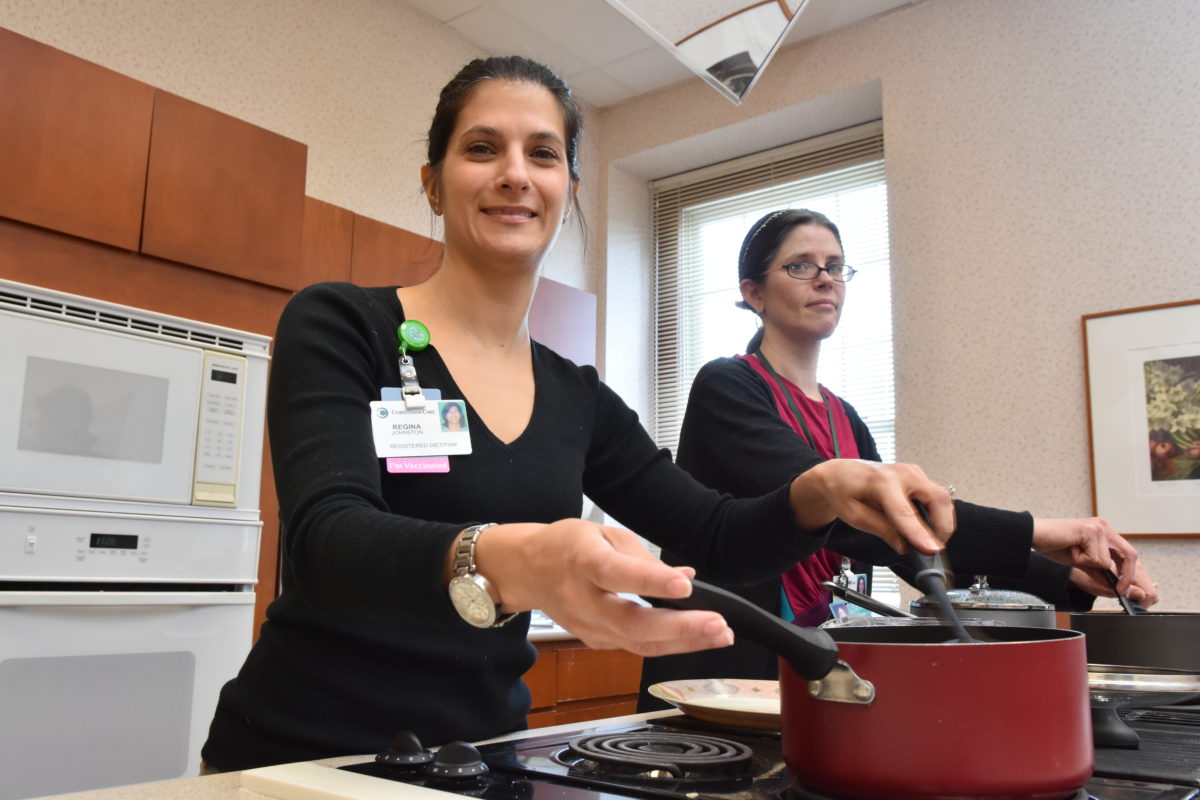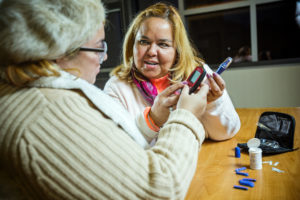For University of Delaware researchers studying the physiological effects of dietary salt, precision is elementary. They need to know exactly how much sodium study participants consume in each meal to reach accurate conclusions about its effects on the body.
To find the skillset needed to prepare meals to meticulous specifications, these researchers rely a long-running collaboration with Christiana Care Health System’s Eugene du Pont Preventive Medicine & Rehabilitation Institute. The dietitians at the Preventive Medicine & Rehabilitation Institute partner with the researchers by preparing food with clinical precision, weighing out ingredients to craft meals with specific and varying amounts of sodium.

“They’re used to that level of precision when they educate and coach our patients,” said Omar Khan, M.D., MPH, medical director of the Eugene du Pont Preventive Medicine & Rehabilitation Institute.
The collaboration helps university researchers collect data that is often more reliable than self-reports of diet, said William B. Farquhar, Ph.D., FACSM, professor and chair of the Department of Kinesiology and Applied Psychology at the University of Delaware.
“The other approach is to assess how much people habitually eat, but the challenge is that sodium intake varies widely,” Dr. Farquhar said.
The partnership with Christiana Care allows him to establish control over the experimental variable — sodium consumption — while otherwise allowing people to normally live their lives.
“I think our studies are real-world,” he said. “Participants are going through their normal daily activities.”
Their most recently published work, in the Journal of Human Hypertension, investigates the connection between sodium consumption and a phenomenon called “blood pressure dipping.” In healthy adults, blood pressure dips around 10 percent at night. However, adults whose blood pressure doesn’t dip at night have a heightened risk of cerebrovascular and cardiovascular disease.
Participants were fed seven-day regimens of low-, normal- and high-salt diets. On the final day of each diet, they wore a 24-hour blood pressure monitor.
The study revealed some good news: Even after a week of a high-sodium diet — more than triple the safe limit — participants’ nocturnal blood pressure dipping was not impaired. What’s not clear, though, is the long-term effect of high sodium consumption on blood pressure dipping.
The researchers and dietitians will next focus on testing the physiological effects of dietary potassium and glucose.
The partnership is one of many areas in which two of the state’s largest institutions are intertwined, said Karen Anthony, MS, senior program manager for nutrition services and diabetes primary care at the Prevention Medicine & Rehabilitation Institute. The university often sends students to Christiana Care to complete the more practical parts of their education. And Christiana Care physicians conduct bench research in cancer, immunology and other fields, Anthony said.
“The University of Delaware and Christiana Care are partners because of the work we do,” Dr. Khan said. “I give Karen and her team a lot of credit — it’s a well-oiled machine so that every time they call with a research idea, we’re ready.”



